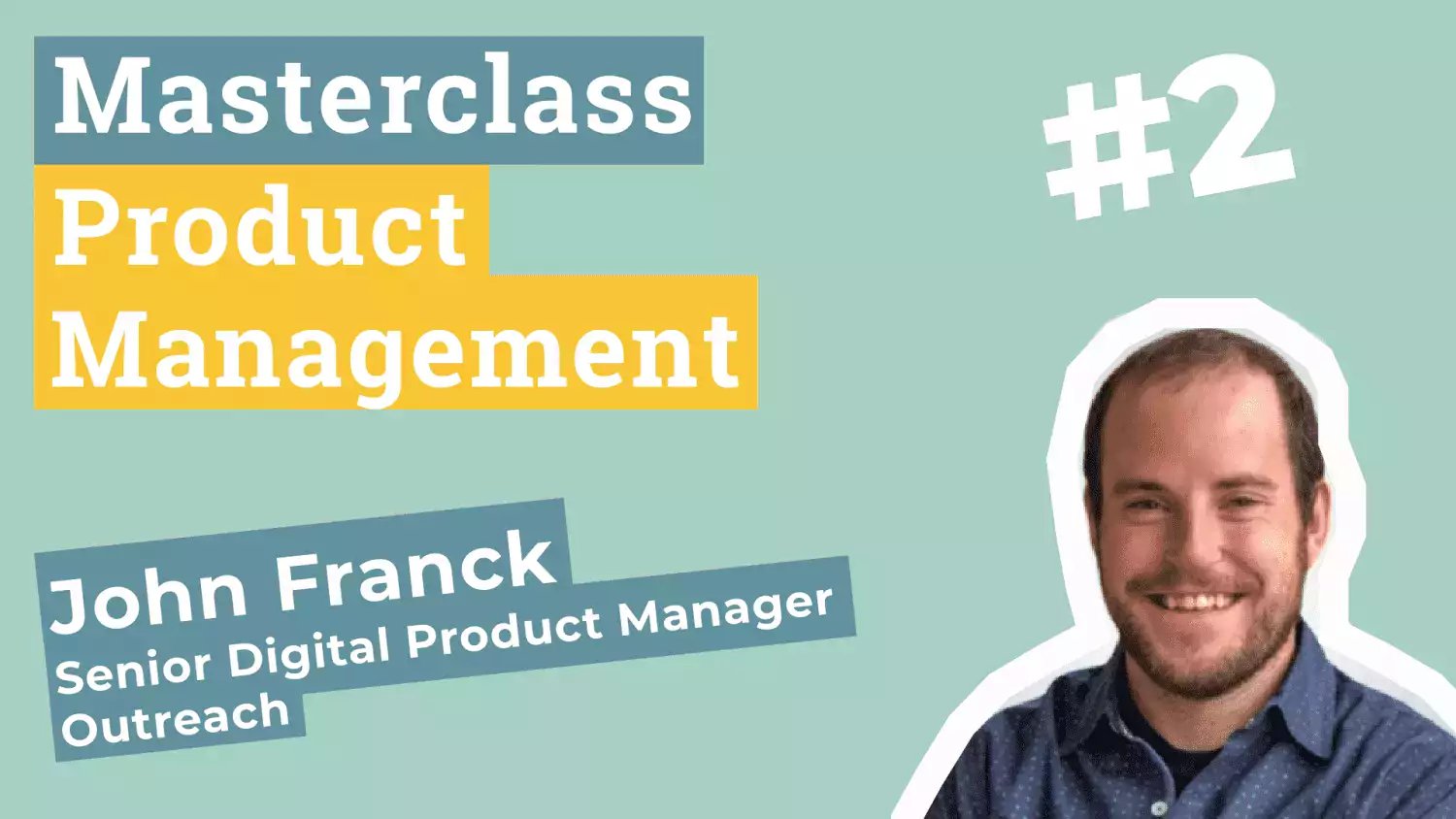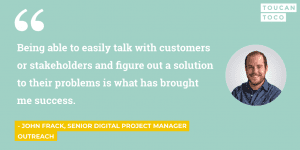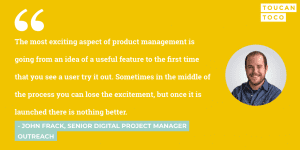
1. Tell us a bit about yourself!
I am a Senior Product Manager from Colorado Springs, CO. I find joy in building and creating new things. In my job, this translates to building new SaaS products and in my personal life, this translates to building wood and concrete furniture. I also just published my first book Every Product Manager’s First 90 Days. The workbook is designed to help product managers navigate their new role. The exercises and questions came from my own experience training and mentoring other product managers.
2. In one word or one sentence, how would you describe your product management style?
Ideation and Iteration
3. How did you get into product management?
The state of Colorado hosts a coding competition every year called GoCode Colorado. The competition is about developing an application that uses public data to help businesses. I participated twice and my role on the team was to pitch the idea and project management. I didn’t even know what a product manager was while doing it. The second time we won first place. After this when I was looking to transition into a new role I came across the job description of a product manager. I realized I had been doing the role of a product manager in both of those competitions. It was the perfect alignment between what I was passionate about and my skills.
4. What are one or two things you typically do during the first hour of your day that lead to a productive day?
One of the best things I have done is use Morning Pages to start my day. The practice is simple and a great way for anyone to start their day. Before I read emails, check slack, or do any other work I open a blank Google doc and start typing out everything in my brain. I don’t care about spelling and I write down everything even if it isn’t work-related. After a few paragraphs, it becomes clear what I need to focus on for the day. The roadblocks emerge that need to be solved. I then write out a to-do list for the day and schedule any meetings that should happen because of the to-do list. Then the document is permanently erased. By deleting the document each day, you feel the freedom to write anything you want.
5. What’s one of your biggest challenges in product management today?
The last year had an unprecedented rate of people changing their behavior. For example, QR codes have been around for years and no one has scanned them. Now we use them every time we go out to eat. The pandemic has brought about hundreds of similar micro behavior changes within people. The challenge that brings to product management is that people will interact differently with products than they did before. However, with every challenge, there is also an opportunity.
6. What are some of the qualities of great product managers?
The three attributes that I believe make a great product manager are curiosity, optimism, and a healthy amount of skepticism.
- Curiosity because as a product manager you constantly need to learn. New technologies should excite you. You should always find yourself being curious about new ways to improve your product.
- Optimism because you are the one that needs to excite and motivate teams with little authority. You paint the vision for where a product is going, and this needs to be filled with optimism.
- Skepticism is not one you normally see on someone’s list. I believe a healthy amount of skepticism mixed with optimism can be found in fantastic product managers. A skeptical product manager will make sure they dig into the data and customer feedback they receive. They won’t think every idea is a good idea. If they are also optimistic, they still will be enjoyable to work with.
7. What has made you successful in your role?
I was not in the tech industry for the first 8 years of my career. While this was a disadvantage at first trying to transition into product management, it now is one of the things that makes me successful. I can approach problems from a different perspective. My previous role also required me to interact with customers face to face to determine their project needs. Being able to easily talk with customers or stakeholders and figure out a solution to their problems is what has brought me success.
8. What qualities make a good product? Any tips and tricks for our readers for building a better product?
Simply put a good product starts with solving a customer problem, and then it aligns with a business goal. Too often products start with the business goals, and then a customer need is attached to them. This means you must become an expert at figuring out customers’ needs and then narrow down which ones they will pay to have a solution to. The book I recommend to everyone on this is“The Mom Test: How to Talk to Customers and Learn If Your Business is a Good Idea when Everyone is Lying to You.”
9. What aspects of product management do you find the most exciting?
The most exciting aspect of product management is going from an idea of a useful feature to the first time that you see a user try it out. Sometimes in the middle of the process (design, roadmap, development, UAT) you can lose the excitement, but once it is launched there is nothing better.
10. What is one best practice you’ve adopted/applied in the last few months that had a positive impact on your role? How has it helped you?
A few months ago I switched to only have slack and email open for certain time slots of the workday. Automation makes them both open and close during those time frames. This allows me to be more focused on work when they are closed and more focused on responding to everything when they are open. It takes constant effort to minimize distractions and allow ourselves to do deep focused work. Removing Slack and email from part of the day has a huge impact on that.
11. What are some common mistakes you see product teams making?
A huge mistake I see across the industry is hiring a product manager to do things besides product management. I have seen teams try to hire a product manager who can also code, do UX/UI, or run marketing. While all these skills help product manager do their job, they shouldn’t be trying to do two different job functions. A product manager needs to have the knowledge to communicate with developers, designers, and marketers, however, they do not need the level of skill to fully do one of those jobs.




